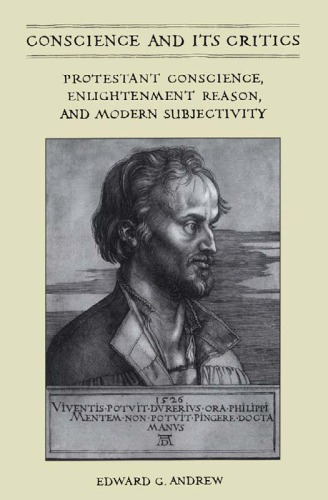

Most ebook files are in PDF format, so you can easily read them using various software such as Foxit Reader or directly on the Google Chrome browser.
Some ebook files are released by publishers in other formats such as .awz, .mobi, .epub, .fb2, etc. You may need to install specific software to read these formats on mobile/PC, such as Calibre.
Please read the tutorial at this link: https://ebookbell.com/faq
We offer FREE conversion to the popular formats you request; however, this may take some time. Therefore, right after payment, please email us, and we will try to provide the service as quickly as possible.
For some exceptional file formats or broken links (if any), please refrain from opening any disputes. Instead, email us first, and we will try to assist within a maximum of 6 hours.
EbookBell Team

4.3
68 reviewsConscience and Its Critics is an eloquent and passionate examination of the opposition between Protestant conscience and Enlightenment reason in the seventeenth and eighteenth centuries. Seeking to illuminate what the United Nations Declaration of Rights means in its assertion that reason and conscience are the definitive qualities of human beings, Edward Andrew attempts to give determinate shape to the protean notion of conscience through historical analysis.
The argument turns on the liberal Enlightenment's attempt to deconstruct conscience as an innate practical principle. The ontological basis for individualism in the seventeenth century, conscience was replaced in the eighteenth century by public opinion and conformity to social expectations. Focusing on the English tradition of political thought and moral psychology and drawing on a wide range of writers, Andrew reveals a strongly conservative dimension to the Enlightenment in opposing the egalitarian and antinomian strain in Protestant conscience. He then traces the unresolved relationship between reason and conscience through to the modern conception of the liberty of conscience, and shows how conscience served to contest social inequality and the natural laws of capitalist accumulation.